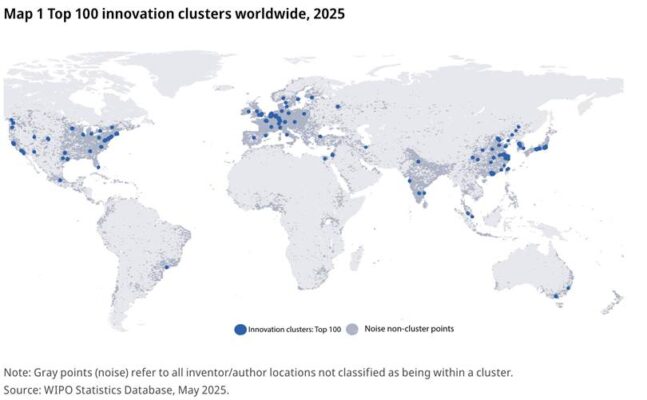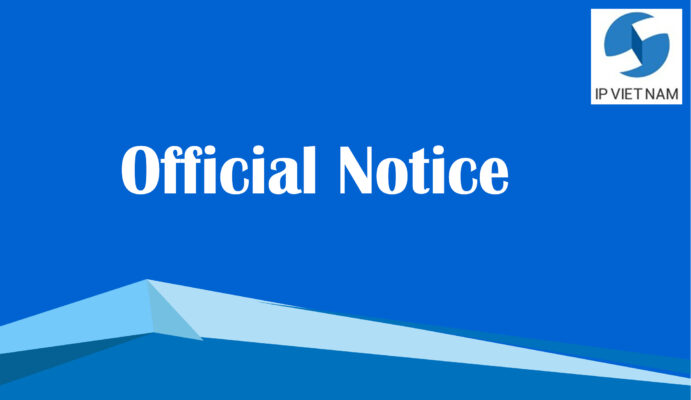The Ministry of Science and Technology stated that the Intellectual Property (IP) Law was first promulgated in 2005 and subsequently amended and supplemented in 2009, 2019, and 2022. Overall, the current legal provisions on IP rights have established a relatively comprehensive legal framework for IP rights protection.

Existing Limitations of the IP Law
However, the IP Law still has several shortcomings and limitations, such as:
- Lack of specific provisions on measures to promote and facilitate the commercial exploitation of IP rights, while the capacity of Vietnamese organizations and individuals to commercially exploit IP rights remains limited. There are no clear regulations on patent commercialization, licensing, valuation, appraisal, or using IP rights as collateral; the IP rights market has yet to be promoted.
- IP registration procedures remain complex and time-consuming, failing to meet the demand for streamlining and reducing the duration of IP-related administrative procedures.
- Provisions on rights enforcement are not stringent enough, lacking deterrence. Resources to support enforcement, particularly IP assessment work, are limited; enforcement authorities lack specialized technical expertise; and there are insufficient mechanisms to actively support businesses in implementing IP rights protection measures.
Promoting Innovation and Developing the IP Market
According to the Ministry of Science and Technology, amending and supplementing certain articles of the IP Law is necessary to continue improving the legal framework, thereby creating a strong and favorable corridor for IP rights protection, particularly in areas where Vietnam has potential and advantages.
Promoting innovation and developing the IP market will meet the demand for commercial exploitation of IP rights, contributing to improved productivity, quality, national product reputation, and overall economic competitiveness.
It will also create momentum to fully unleash Vietnam’s intellectual potential, foster an enabling environment for rapid acquisition, mastery, and application of global scientific and technological advancements, and serve Vietnam’s international economic integration in the new context.
Five Policy Groups
The draft proposes amendments and supplements to certain articles of the IP Law focusing on five major policy groups, including:
Policy 1: Support the creation and commercial exploitation of IP assets to foster innovation.
Policy 2: Simplify administrative procedures and facilitate IP registration and rights establishment.
Policy 3: Improve the effectiveness of IP rights enforcement activities.
Policy 4: Ensure full implementation of Vietnam’s international commitments on IP protection in the integration process.
Policy 5: Update new global issues in IP protection in line with Vietnam’s policies and socio-economic development level.
Regarding Policy 2: Simplifying administrative procedures and facilitating IP registration and rights establishment, the draft proposes amendments and improvements to regulations on security control of inventions and confidential inventions before overseas filing (Article 89a).
Additionally, it amends and improves regulations related to establishing industrial property rights, authorizing the Minister of Science and Technology to stipulate details regarding application-receiving agencies/organizations, conditions for receiving industrial property applications, procedures for substantive examination, granting/refusal of protection titles, to meet the objective of simplifying administrative procedures, etc., while improving application processing procedures (Articles 89, 107, 108, 109, 113, 114, 117, 118, 119a, 120a, 150). It also amends and improves provisions on copyright and related rights registration, and on the process of managing, examining, and publishing plant variety protection titles, to enhance the effectiveness of online public services and streamline administrative procedures (Articles 49, 50, 51, 55, 165, 170, 176, 183, 191).
The draft further proposes new additions: regarding investment in state management of IP and accelerating digital transformation in administrative procedures, the draft law adds provisions prioritizing resource development, investment in IT infrastructure, digital platforms serving IP operations, specialized IP databases, tools, and equipment, and creating favorable mechanisms for agencies directly performing state management functions in IP to address current difficulties and meet the increasing demand of society for IP rights protection; it also adds provisions to comprehensively digitize IP rights protection activities (Articles 8 and 12).
On strengthening post-check mechanisms in administrative procedures, the draft law supplements provisions clarifying applicants’ responsibility for declared information in applications to shift toward a post-check mechanism, and revoking decisions of competent authorities in cases with evidence of false information (Articles 49 and 100).
In addition, the draft law proposes transferring detailed provisions on application processing procedures from the Law to Circulars to ensure legislative stability and facilitate review and simplification of regulations on IP registration and rights establishment (Articles 52, 101, 102, 103, 104, 105, 106, and 149).
For cutting and simplifying administrative procedures, the draft proposes amendments to shorten the processing timelines for industrial property applications and plant variety protection applications, opposition periods, publication timelines for industrial property applications, and timeframes for technical examination of plant variety trials to accelerate examination processes, meet international commitments, and facilitate the faster commercialization of new plant varieties (Articles 110, 112a, 119, and 178). It also amends and supplements provisions to allow patent, trademark, and industrial design applications filed in Vietnam to serve as the basis for claiming priority in foreign filings from the date of acceptance to facilitate overseas registration (Article 109).
Regarding decentralization and delegation, the draft proposes amendments and supplements to relevant provisions in the IP Law to align with content on decentralization and delegation of administrative procedure implementation to local authorities (Articles 147, 148, and 156).
The Ministry of Science and Technology is currently seeking public feedback on this draft [link] via its e-portal.
Source: baochinhphu.vn









Need Legal Advice on Intellectual Property?
Our experienced IP lawyers provide comprehensive services: patent and trademark registration, industrial design, copyright, dispute resolution...
Get Free Consultation